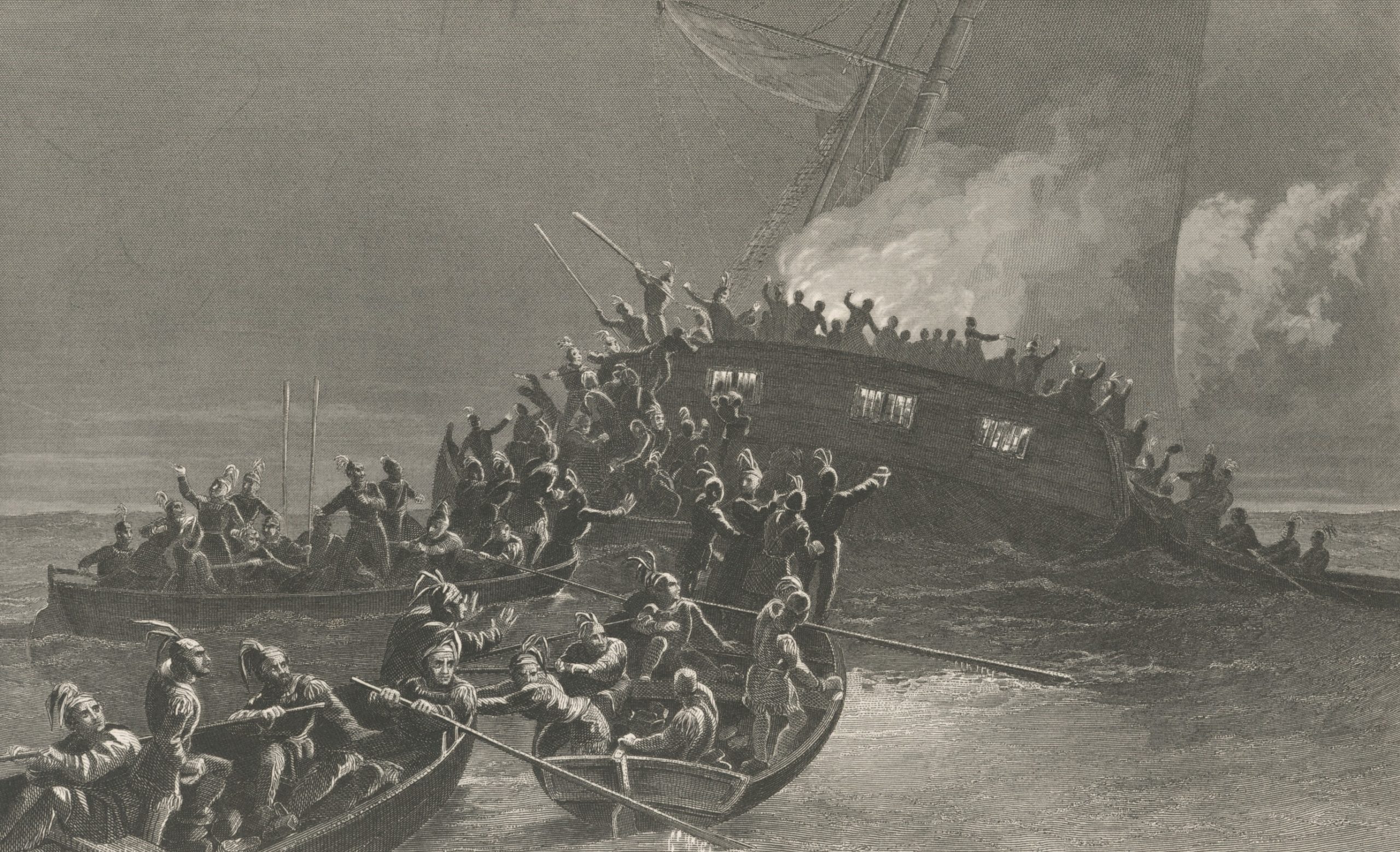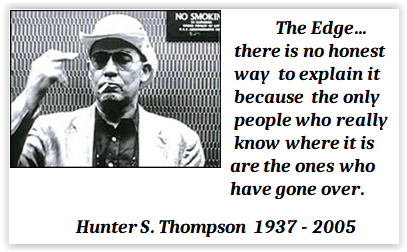Despite the Federalist Papers having been written over 230 years ago, the arguments they contained with regard to the dangers in store for the governed at the hand of tyrannical governance are every bit as clear now as we were warned about over two centuries ago. A review of these essays will help you to recognize the extent to which we have, as a nation, lost sight over the centuries of the need for careful consideration regarding what effects we have on our country when we do not adequately sustain a thorough and well-reasoned reflection and most honest and vigorous debate over the needs and the greater good of the entirety of the nation as opposed to the fleeting temptations to which our various classes and their factions are routinely subjected and must always resist.
Young America endured a great many growing pains; during the first 70 years of our history, as it has been throughout the history of humankind, our own first three generations confronted many obstacles and made plenty of mistakes along the way, but a “more perfect union” can only be eternally pursued, and never fully realized, because the fundamental Darwinian truth about human nature suggests that perfection and paradise cannot be achieved by imperfect souls, thus making it inevitable that our third generation would naively presume to know better than their forefathers and lose sight of their elder wisdom, respect for history, and healthy understanding of human nature.
They ignored the warnings handed down to us generations earlier. They had forgotten the value of adequately sustaining thorough and well-reasoned reflection and most honest and vigorous debates. Within “only” 70 years or so of gaining our freedom and independence, they had cast off or brushed aside the stark and stern warnings of Hamilton and others about the delicate balance that must be fervently struck and forcefully maintained between the competing interests of Federalism and Anti-Federalism.
The Founders understood, having experienced it themselves, the effects of tyrannical oppression, by the central monarchy and the elite ruling classes, on the lives, liberties, and freedoms of the individual. So, too, did they recognize, in the interest of assuring peaceful coexistence with coequality amongst and between the citizenry, that a balance between Central Authority and Individual Sovereignty and self-determination must be found and fiercely defended.
Further, they had warned us against depending “on accident and force for our political constitutions” and implored us to be wary of “views, passions and prejudices little favorable to the discovery of truth.” As well, while celebrating the idea that this nation must surely have been designed by Providence, in Federalist No. 2, they forcefully insisted that we “should never be split into a number of unsocial, jealous, and alien sovereignties” while, in Federalist No. 6, they made soberly clear the very real probability that, given Mankind’s propensity for “ambitious, vindictive, and rapacious” behavior, only an efficiently run, minimally-invasive, and judiciously managed government would prevent its citizenry from being “subject to the impulses of rage, resentment, jealousy, avarice, and of other irregular and violent propensities.”
The Anti-Federalist voices of the Founders’ generation were by no means the loudest, but they were the most steadfast in their conviction that constraints on government power and its inherent capacity to crush citizen dissent, led to the creation of the Bill of Rights and its presence in the ultimately-ratified Constitution. A fair argument can be made that these same sentiments, albeit with vastly different intentions, played a significant role in the first Civil War ever having taken place.
Nonetheless, 73 years after Hamilton published this warning, on December 20, 1860, South Carolina decided to ignore him and choose, instead, to secede from the union and prove Hamilton correct on the dangers to The Republic of dissension between the states and the federal government and, on April 12, 1861, the first shots were exchanged between the Confederate States of America and the United States of America, and by the time the smoke had cleared, more than 600,000 lives had been lost for essentially all of the reasons Hamilton had anticipated and implored us to, in all things and at all costs show restraint for the sake and safety of the Republic.
I leave it to readers to determine for themselves which specific thing might have ultimately pitted Americans against each other in a war, ending slavery being chief among these, but it is no small thing that President Lincoln -intentionally or not- effectively cast aside Anti-Federalists’ warnings of the past, more or less dispensing with the 10th Amendment and putting the federal government at the top of the pecking order of power between the citizenry and the “some several States” and taking for himself (and each president that would follow) the final Authority in disputes between the states and the federal government.
This is not what the founders intended when they drafted the Bill of Rights.
I mean no disrespect to Lincoln. Living in his moment, trying to preserve the Republic and strike a balance between his belief in America, the “rapacious behavior” of the elite Southern Democrats, and the shrinking willingness of increasing numbers of citizens to coexist with the evils of slavery, he had but few options from which to choose. He certainly couldn’t have envisioned what America would look like 160 years after the Civil War came to an end, nor could he have ever anticipated the extent to which the seeds he so nobly planted for a reunited America would grow into the future American federal government that would ultimately become the corrupt Leviathan that it has. It would have been inconceivable to him that a future federal government would ever, by its own intentional actions, stir the embers and set alight new flames of modern Civil War he had spent hundreds of thousands of lives thinking he had, once and for all, extinguished from the American consciousness.
All the same, here we are, but the dimensions of the modern Civil War are orders of magnitude greater and more complex if for no other reason than the reality that this so-called New World Order and Global reset brings the wealth and power of the unelected to the forefront of the challenges and oppression being wrought on rank-and-file citizenry around the globe. Where it has been, for the 6 Generations that have passed since the days of Lincoln, a brittle but mostly peaceful coexistence between the governing and the governed, the New World Order has set its sights on constraining the freedoms and rights to self-determination of the Sovereign Individual. Where it was once that our democratically elected government was prohibited, technically, from encroaching on the constitutional rights of the Sovereign Individual, these prohibitions do not apply to the wealthy and most powerful, most of whom hold power and control over every facet of the individual’s ability to work, live, worship, or conduct commerce with one another, or with the businesses these globalist elites control.
By design, it was always intended that the government would restrain such actors in the name of protecting the rights and freedoms of the people whose job it is to put them in office. What has become of our democracy now, however, is a devil’s bargain that allows for greater wealth among the few in exchange for sustained power for the bureaucrats. All of this comes on the backs of the Sovereign Individual and the dilution of their power over their own destiny.
We will go to some lengths in the next part of this series looking at the sorts of options available to the Sovereign Individual, but paramount to any of the choices needing to be made going forward is the renewal of the power given to us by the Founding Fathers in the Tenth Amendment to the Constitution. These Powers continue to be available to us so long as the Constitution remains intact in its current form and, accordingly, remains the law of the land. The text of this amendment goes like this:
“The powers not delegated to the United States by the Constitution, nor prohibited by it to the States, are reserved to the States respectively, or to the people.”
In perhaps the greatest irony of America’s modern era, where the 10th Amendment was superseded by the power of the executive branch, it may yet come to pass that it will be the Tenth Amendment- invoked against the Executive branch-that will return us to that delicate “balance” between Central Authority and Individual Sovereignty and self-determination that must be found and fiercely defended.”
It has been said countless times over the centuries that all politics is local, and this is to the maximum benefit of the rank-and-file American citizen. As such, the power to constrain the Executive branch starts with the rank-and-file voter, working through their state Governor, and landing in the lap of whoever the sitting president happens to be.
The last vestiges of hope for the survival of humankind’s free will may yet reside in the hands of state governors. While it is true that speech, self-defense, Individual Sovereignty, due process, and equal justice have all been usurped by the imperialistic yearnings of the wealthy and most powerful few, with little resistance from the federal Executive and Legislative branches, so long as the citizens of each of “the some several States”, in concert with their state governors, “we the people” can still muster enough collective will to subdue the federal Leviathan once more.








 It is said that wisdom is “the quality of having experience, knowledge, and good judgment. “ I am of the opinion that there are far more people in the world that consider themselves "lovers of wisdom" (philosophers) than there are those that actually possess it.
At her founding, the American Nation had already amassed 150 years of " national" wisdom; our first-of-its-kind Nation, built from the bottom up (as opposed to the top-down construction of every previous nation in humankind's history), and the Framers understood that the single-most-important ingredient necessary for her long-term survival was the freedom, liberty, and right to self-determination of the Sovereign Individual of which she would necessarily be comprised.
Join us, or follow along as we take a closer look at these notions.
It is said that wisdom is “the quality of having experience, knowledge, and good judgment. “ I am of the opinion that there are far more people in the world that consider themselves "lovers of wisdom" (philosophers) than there are those that actually possess it.
At her founding, the American Nation had already amassed 150 years of " national" wisdom; our first-of-its-kind Nation, built from the bottom up (as opposed to the top-down construction of every previous nation in humankind's history), and the Framers understood that the single-most-important ingredient necessary for her long-term survival was the freedom, liberty, and right to self-determination of the Sovereign Individual of which she would necessarily be comprised.
Join us, or follow along as we take a closer look at these notions.
 Vassar Bushmills
Vassar Bushmills
Add comment